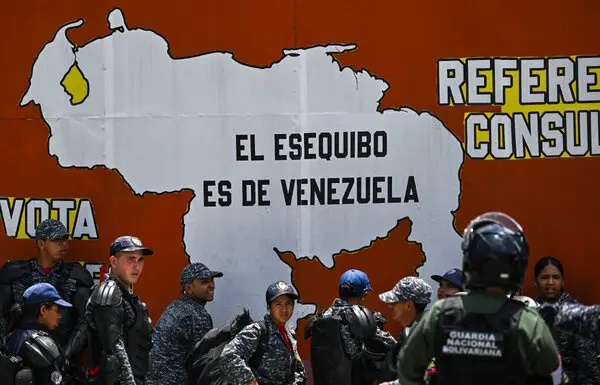Venezuela Opens Polls for Regional and Legislative Elections
On Sunday, polling stations in Venezuela began opening at 6 a.m. local time for regional and legislative elections, which for the first time include the selection of authorities for the state of Guayana Esequiba.
“Sunday, May 25th, has arrived! A blessed day of democratic and free elections in Venezuela, a day on which we celebrate because the ordinary people always exercise their constitutional power and sovereignty. Let’s all vote for peace, for life, for the homeland. Do it united and mobilized as a family and as a community. Vote!” President Nicolas Maduro said in a video posted on social media.
The state-run broadcaster Venezolana de Television (VTV) aired footage from Tachira, a state bordering Colombia, where Governor Freddy Bernal, who is seeking re-election, cast his vote.
For this election, 15,736 polling centers have been set up, with a total of 27,713 voting tables operating, according to figures from the National Electoral Council (CNE). About 21.4 million Venezuelans are eligible to vote to fill 569 positions, including 285 seats in the National Assembly (AN), 24 governorships, and 260 regional legislative posts.
This election day has drawn particular attention for including the election of a governor, eight national parliament deputies, and seven members of a regional legislative council for the state of Guayana Esequiba. Currently, this 160,000-square-kilometer, mineral-rich territory is under dispute with Guyana in a conflict dating back more than a century.
The International Court of Justice (ICJ) urged Venezuela to “refrain from holding or preparing to hold elections” in Esequibo. Venezuelan authorities, however, categorically rejected the ICJ statement, asserting that the country does not recognize the court’s jurisdiction.
In the week leading up to the vote, Venezuelan Interior Minister Diosdado Cabello denounced a plot to attack embassies in the country, which he attributed to the Venezuelan far right, accusing them of attempting to sabotage the elections.
Two days before the vote, authorities arrested around 70 far-right activists linked to this destabilization plan, including Juan Guanipa and several foreign nationals. Guanipa is an activist associated with Maria Corina Machado, an U.S.-backed far-right leader.




